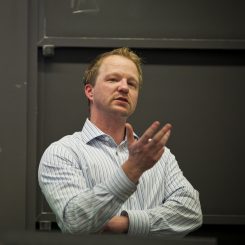May 14, 2020 - 11:00 AM - 12:30 PM
MIT Panel Discussion on the Oil Market Impacts of the COVID-19 Pandemic
Abstract:
In early March, a meeting of the OPEC+ group, which includes both members of the Organization of the Petroleum Exporting Countries (OPEC) and other oil-producing countries such as Russia, failed to agree on production cuts to offset the demand shock caused by the novel coronavirus outbreak. When Saudi Arabia decided to increase its output, the downward trend of crude oil prices accelerated, reaching new lows not seen in nearly two decades.
What are the geopolitical implications of this dramatic collapse in oil prices, and the inability of OPEC to secure an effective response? What measures can be, or are already being, taken to address the growing oil demand and supply imbalance? How will the evolving market context affect U.S. producers, and, in particular, hydraulic fracturing? And what are the consequences for the continued push to decarbonize U.S. and global energy systems?
Several experts from MIT and invited guests will draw on their research and practical experience to comment on the fallout from the coronavirus pandemic and the oil price shock.






